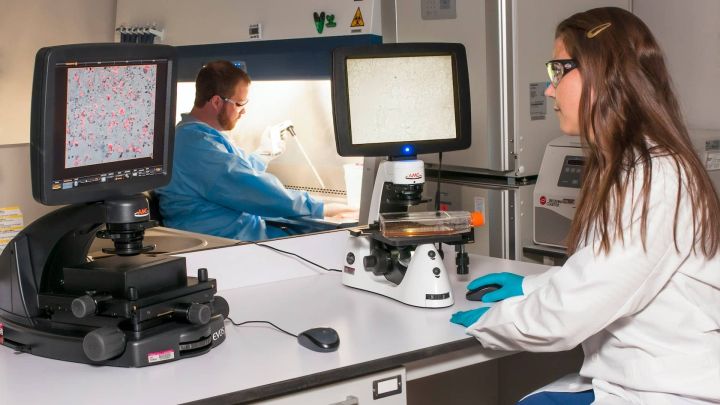In patients with relapsed and refractory multiple myeloma, CAR-T cell therapy Ide-cel resulted in a two-fold increase in the average duration of tumour non-progression compared to standard therapy, with 71% of patients experiencing substantial tumour regression and 39% of patients experiencing complete tumour disappearance.

Based on data from the phase III KarMMa-3 trial, CAR-T cell therapy Ide-cel significantly improved patient outcomes in patients with relapsed and refractory multiple myeloma who had received triple-drug therapy.
Compared to 4.4 months with standard treatment, Ide-cel resulted in a two-fold increase in the average length of time that patients' tumours did not progress, to 13.3 months. In addition, 71% of patients in the Ide-cel treatment group had substantial tumour regression, with 39% of patients having complete tumour disappearance, compared to 42% of patients in the standard treatment group who had substantial tumour regression and only 5% of patients who had complete tumour disappearance.
The results of the study were published jointly by Dr Sergio Giralt and colleagues at Memorial Sloan Kettering Cancer Center in the US in the recent New England Journal of Medicine.

The KarMMa-3 trial recruits patients from May 2019 to April 2022 at 49 study centres in 12 countries. Enrolled patients were divided into two groups, with 254 patients treated with Ide-cel and 132 patients treated with one of five standard regimens, depending on the treatment the patient received prior to enrollment and the investigator's considerations.
Patients enrolled had received 2-4 previous treatments, including immunomodulators, proteasome inhibitors and daratumumab, and had disease progression within 60 days of completion of treatment.
Other results showed that.
73% of patients in the Ide-cel group had disease that did not progress for up to 6 months, compared to 40% in the standard regimen group
55% of patients in the Ide-cel group had disease that did not progress for up to 12 months, compared to 30% in the standard regimen group
Among patients with effective treatment, the duration of efficacy was 14.8 months in the Ide-cel group compared to 9.7 months in the standard regimen group.
In terms of safety, almost all patients in both groups reported adverse reactions, with 93% of patients in the Ide-cel group and 75% of patients in the standard regimen group experiencing grade 3-4 adverse reactions. the incidence of grade 5 adverse reactions was 14% and 8% respectively. The common haematological adverse reactions in both groups were neutropenia, anaemia and thrombocytopenia. cytokine release syndrome occurred in 88% of patients in the Ide-cel group, but only 5% of patients had grade 3 or higher.
In addition, the researchers noted that these efficacies were achieved with a single infusion of Ide-cel, whereas the standard regimen requires continuous treatment.
"Overall, the incidence, type and severity of adverse reactions associated with Ide-cel treatment observed in the KarMMa-3 trial were consistent with previous studies, and no new safety signals were identified." The researchers write.
"The efficacy of Ide-cel was striking because two-thirds of the patients enrolled had already been treated with immunomodulators, proteasome inhibitors and anti-CD38 antibodies, all of which had failed."

"We saw efficacy in refractory patients, with a significantly longer duration of tumour non-progression and a deep and durable efficacy." Dr Giralt said there is no standard regimen that provides durable efficacy in this setting. "These results make it possible to use Ide-cel as an earlier standard of care for relapsed and refractory multiple myeloma."
